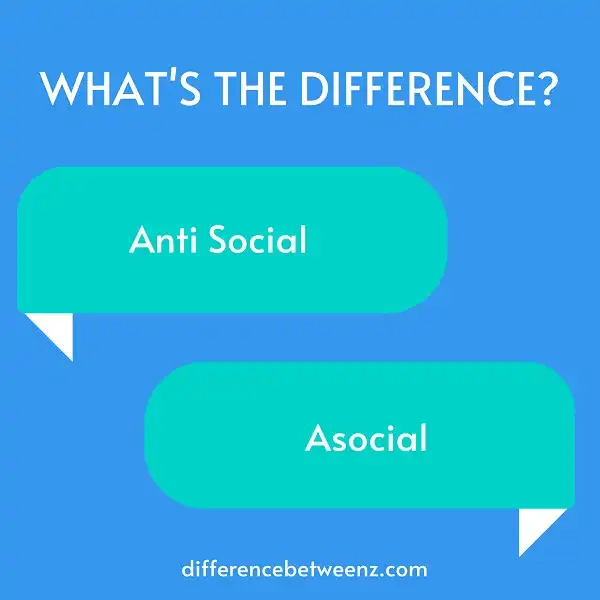What is the difference between anti social and asocial? Are they one and the same? In this blog post, we’ll explore the definition of each term and differentiate between them. We’ll also discuss how to know if you or someone you know may be experiencing either condition. Lastly, we’ll provide some resources for further reading on the topic.
What is Anti Social?
- Anti social behavior is any behavior that goes against the norms of a society. This can include everything from public drunkenness and littering to more serious offenses like vandalism and assault. Anti social behavior is often motivated by a desire to cause harm or disruption, and it can have a negative impact on both individuals and communities.
- In some cases, anti social behavior is simply a result of poor judgment or ignorance. However, in other cases, it may be indicative of underlying mental health issues, such as anxiety or depression.
- Regardless of the cause, anti social behavior can be damaging and destructive. It is important to be aware of the signs of anti social behavior so that you can avoid it or get help if you or someone you know is displaying these signs.
What is Asocial?
Asocial refers to a person who does not seek or enjoy the company of others. Asocial people are often seen as introverts, but there is more to the asocial personality than simply preferring to be alone. Asocial people may also have difficulty forming and maintaining close relationships, and they may not be interested in participating in social activities. Asociality is not the same as antisocial behavior, which refers to someone who deliberately behaves in a way that is intended to harm or upset others. While asocial people may not always be the life of the party, they can still be good friends, reliable employees, and contributing members of society.
Difference between Anti Social and Asocial
Anti social is the state of being averse to interacting with others. It may stem from shyness or from a lack of interest in others. Anti social behavior can be disruptive and may even be illegal, as in the case of harassment or stalking. Asocial, on the other hand, simply refers to a lack of interest in socializing. It is not necessarily disruptive and is often simply the result of introversion. While both anti social and asocial behavior can be problematic, they are not the same thing. Anti social behavior is characterized by a deliberate avoidance of others, while asocial behavior is simply a lack of interest in socializing. As a result, asocial people are not necessarily anti social.
Conclusion
It’s important to understand the difference between anti social and asocial behaviors because they are often confused. Anti social people may act out of a sense of entitlement or superiority, while asocial people simply don’t care about other people. We hope this article has helped you better understand the two terms and how to identify them in yourself and others.


